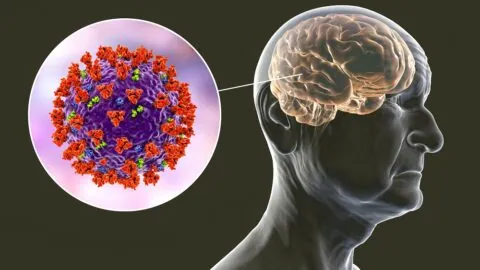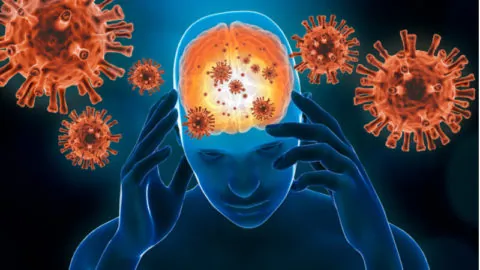February 04, 2025
Mortality among Americans aged 25-44 has risen substantially between 2011 and 2023, a new study has found, and it remains high even after having passed the COVID-related peak [1]. Riches to rags Despite the US being one of the world’s richest countries, Americans’ average life expectancy has been lagging behind that of comparable countries by...
November 16, 2023
A new publication in Nature Aging has used organoids and model mice to discover that senolytics may be effective treatments for neurodegeneration caused by long COVID. A link between COVID-19 and cellular senescence Post-acute infection syndromes (PAISes) are caused by a variety of viral and bacterial infections. The PAIS specific to the COVID-causing SARS-CoV-2, "long...
October 03, 2023
Katalin Karikó and Drew Weissman received this year’s Nobel Prize in Physiology or Medicine for a groundbreaking discovery that facilitated the development of mRNA vaccines and can be relevant to future anti-aging therapies. A crucial discovery The COVID-19 pandemic was one of the biggest health challenges that humanity has ever seen. At its dawn, things...
July 15, 2022
Researchers have shown that even mild SARS-CoV-2 infection can cause lingering neurological symptoms. These findings might shed light on the infamous "long COVID" [1]. Mild doesn't mean harmless COVID survivors sometimes experience cognitive symptoms, such as “brain fog”, that can linger for months. Those symptoms can be debilitating, affecting work performance and learning, and they...
March 21, 2022
A research paper that has just been peer reviewed and published in Nature has described how disrupting an immune pathway that is upregulated in aging decreases the lethality of COVID-19 in a mouse model. Mice with COVID-19 As the researchers explain, normal mice do not use the same angiotensin converting enzyme 2 (ACE2) as humans,...
July 27, 2021
We recently caught up with Dr. Aubrey de Grey and Michael Rae from SENS Research Foundation (SRF) about the landscape in the field. We asked them two simple questions, and they joined forces to give us their combined insights. Lifespan.io: First, do you think we can defeat aging? Of course I think we can defeat...







